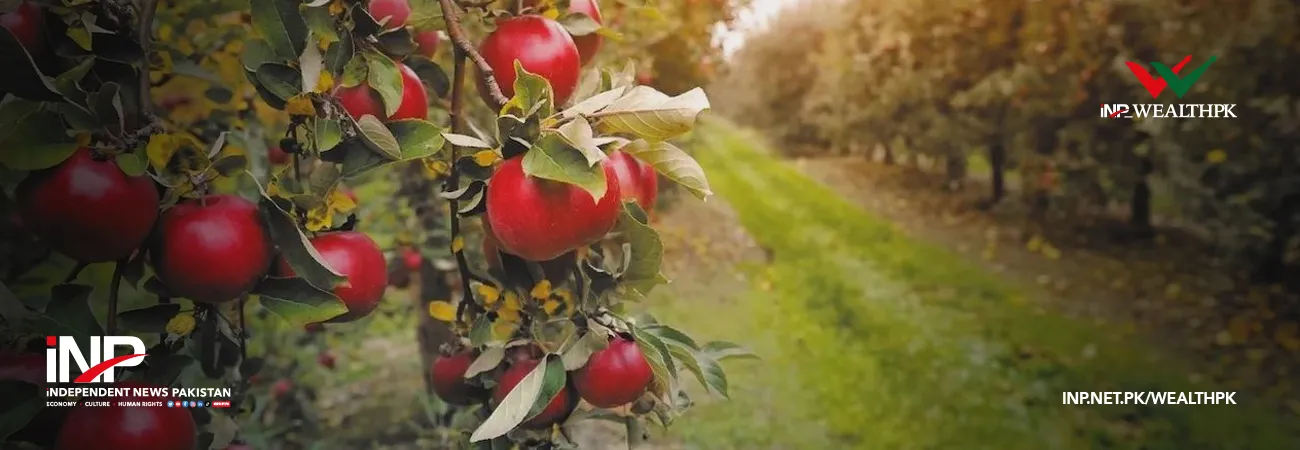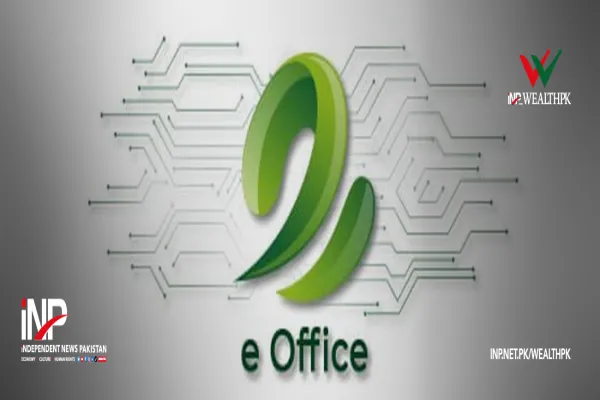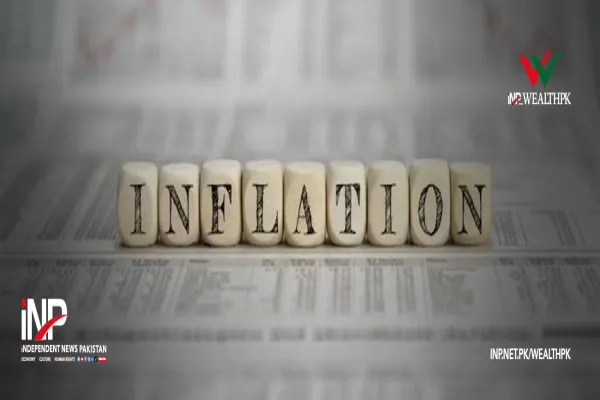i INP-WEALTHPK
Ahmed Khan Malik
Balochistan – Pakistan’s southwestern province known for its mines, minerals, gas and other natural resources – is also blessed with a variety of fruits and vegetables. However, their production and supply chains are not up to the mark, bringing small profits to the growers, reports WealthPK. The province has a wide variety of climate and agro-ecological zones ideal for growing myriads of fruits and vegetables. Horticultural crops, especially fruits and vegetables, make an important contribution to the agricultural sector. In addition, this sector offers sufficient job opportunities and economic potential for increasing the farming community’s income as well as contributing to the local food security. Apple is the major fruit of Balochistan, ranking first in terms of area and production. It plays a significant role in employment, revenue generation and returns. Therefore, based on quantitative assessment of preliminary selection, the apple value chain was selected for further interventions in Balochistan.
The apple producing districts of Quetta, Killa Abdullah, Pishin, Killa Saifullah, and Kalat were selected for the project in consultation with the stakeholders. A study was conducted by JICA, UNIDO and Balochistan government in 2022 to highlight the current needs and challenges of the apple value chain in Balochistan and suggest measures for uplifting the chain. This study also provided an opportunity for the policy makers to tackle this sector’s current challenges. It also aimed to identify the governance issues with focus on institutional capacities and practices within an enabling environment, including the private sector and individual farmers. The National Food Security Policy describes that the value chains in Pakistan, including Balochistan, are characterized by poor standard agricultural markets lacking basic hygiene and traceability.
Moreover, inconsistent grading practices and inefficient transportation services are common. The other key issues of the value chains are lack of market information and cold storages, inadequate and poor roads, high post-harvest losses of fruits and vegetables, traditional and poor packaging materials, lack of accessibility of smallholder farmers to the high-end markets and lack of value addition of agro-based products. Talking to WealthPK, Director of Horticulture Department, Balochistan, Afzal Notezai identified the weaknesses in the system and noted that a middleman was exploiting the small farmers because of their high dependency on him for the sale of their produce. On the other hand, poor consumers also suffer in terms of paying higher prices, impacting the household food security, he said. “On the marketing side, apple grading, packing and marketing standards are not followed and low and good quality apple is very often mixed.
The produce is marketed in a traditional manner and cold storage facilities are poor, leading to high post-harvest losses. The growers complain of lack of facilities for apple processing to get maximum benefits,” he added. “Balochistan does not have adequate apple processing, grading and packing facilities, and a very small proportion of apple is processed into value-added products such as apple pulp, jam, jelly, juice, squashes, drinks, clear concentrate and apple preserves,” said Khair Mohammad, a leading apple grower in Pishin, while talking to WealthPK. He said the farmers were unable to earn maximum profits due to lack of resources and technology, while big corporate farming investors had not shown any keen interest in this sector.
Credit: INP-WealthPk









